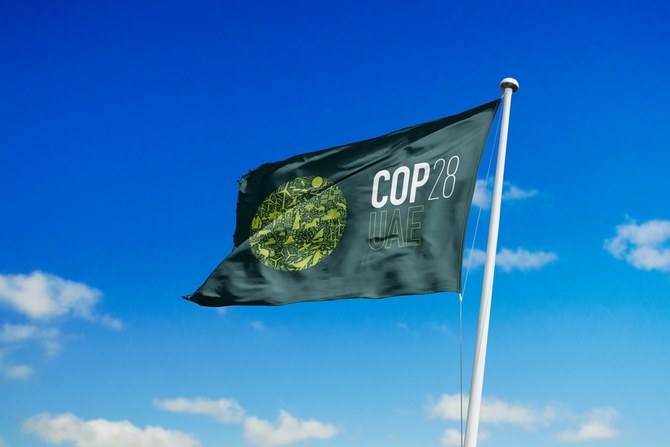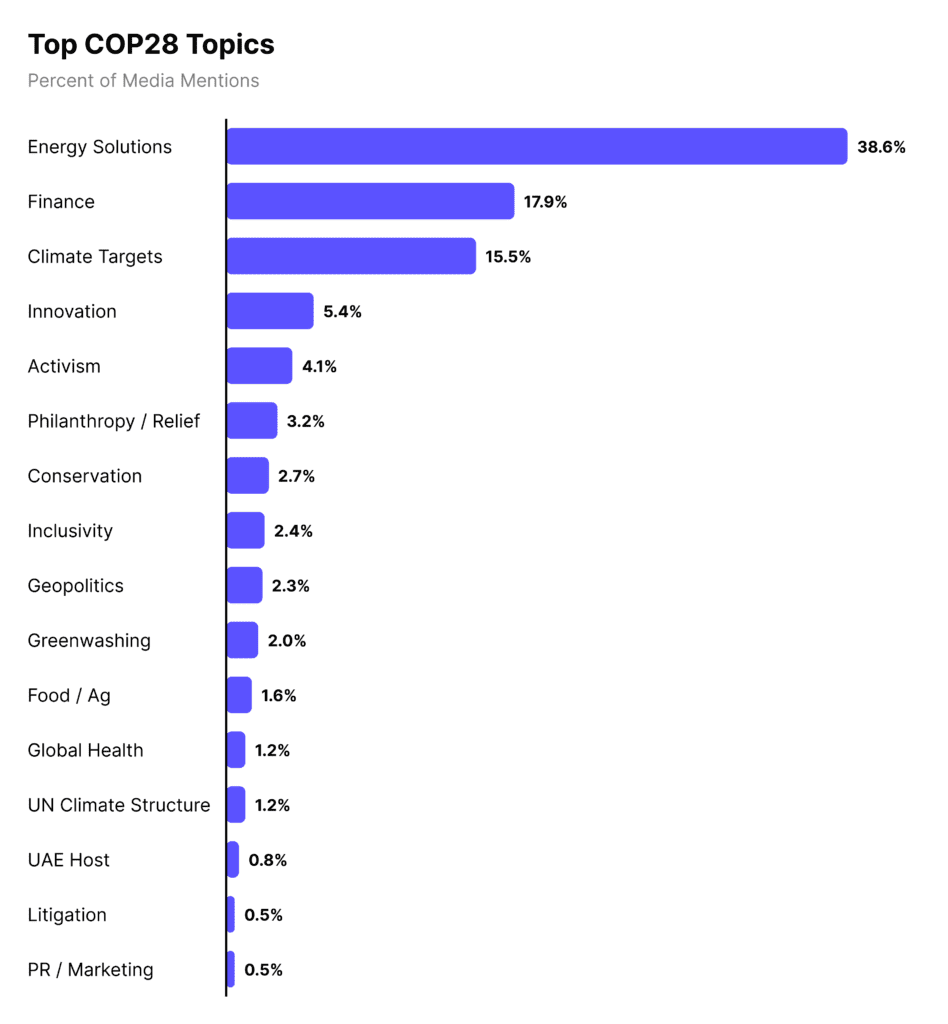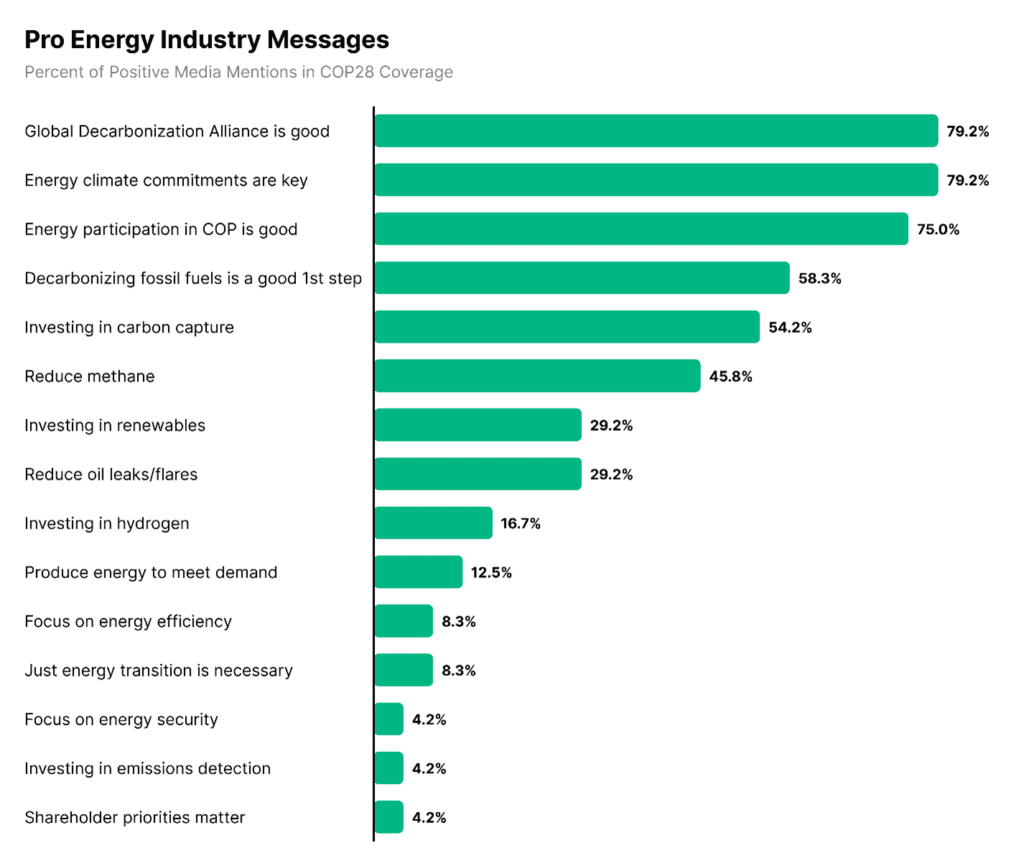
This year’s COP28 Climate Change Conference in Dubai is going to make headlines. Unlike prior years, global energy companies will have a seat at the negotiating table. With no less than the future of UN climate change policy up for debate, the stakes are high for energy communicators.
The energy sector’s involvement at the conference presents reputational challenges and opportunities. So it’s crucial for energy communicators to proactively shape their media reputation.
PublicRelay sought to understand the media landscape for energy companies ahead of COP28. We analyzed a sample of top stories in September and October 2023 about the conference. We also focused on the media’s coverage of major energy companies around COP28.
Here are five PR strategies for energy communicators ahead of COP28:
1. Seize the Spotlight on Energy Solutions
The COP28 news cycle will undoubtedly revolve around energy solutions. Energy-focused articles were most prevalent and mostly positive. They also had among the highest reach and social engagement.
Emphasize your company’s innovations in new energy areas. Positive energy stories focused on the development of renewables like solar and wind. They also discussed the growth of new technologies like carbon capture and hydrogen.
2. Embrace Climate Finance
While energy solutions led the media conversation, climate finance generated just as much social engagement.
Position your company as a leader in financing the transition to a greener future. Highlight investments in new energy solutions. Play up support for innovative approaches to carbon credits and taxation. This will reinforce your image as a forward-thinking business.
3. Capitalize on the Intersection of Climate and Global Health
Global health is an emerging topic in the climate conversation. It didn’t appear often in the COP28 news cycle, but coverage was entirely positive and widely amplified.
Showcase your contributions to global health through environmentally sustainable practices and products. This approach will likely be well received. It may also garner high syndication and sharing.

4. Support Oil & Gas’s Climate Commitments
Oil companies involved in COP28 have an opportunity to take on a greater role in climate action. Early media signals of the oil & gas sector’s climate commitments were positive.
Third-party climate influencers called for energy companies to lead on climate change. Some were optimistic about initiatives like the Global Decarbonization Alliance championed by COP28 president Sultan al-Jaber.
5. Frame your Climate Action as a Transition
Position energy decarbonization as a crucial first step in a just energy transition. Global demand for energy is increasing. But tangible actions by the energy sector can help mitigate the effect of emissions.
Sector-wide initiatives that were viewed positively included reducing methane from oil extraction. Preventing oil flares and leaks also had positive pick-up. These messages may resonate with the public. They can reinforce the sector’s role in meeting global energy demand responsibly.

Managing Risks
Remember that addressing media scrutiny is important. Communicators should prepare to transparently respond to criticism at COP28. Expect accusations of energy companies co-opting global climate negotiations. Have a strategy to manage potential activist calls for boycotts of the conference.
Furthermore, acknowledge the scope of your emission reductions strategy. That’s especially when it comes to scope 2 and 3 emissions. Be ready to engage with politicians’ calls for taxes on energy profits. Highlight your commitments to invest in clean energy innovation worldwide.
COP28 is an opportunity for energy companies to reposition themselves as leaders in the global transition to a sustainable energy future.
Energy communicators must capitalize on emerging positive narratives and address challenges head-on. This can help their companies shine at COP28 and beyond.